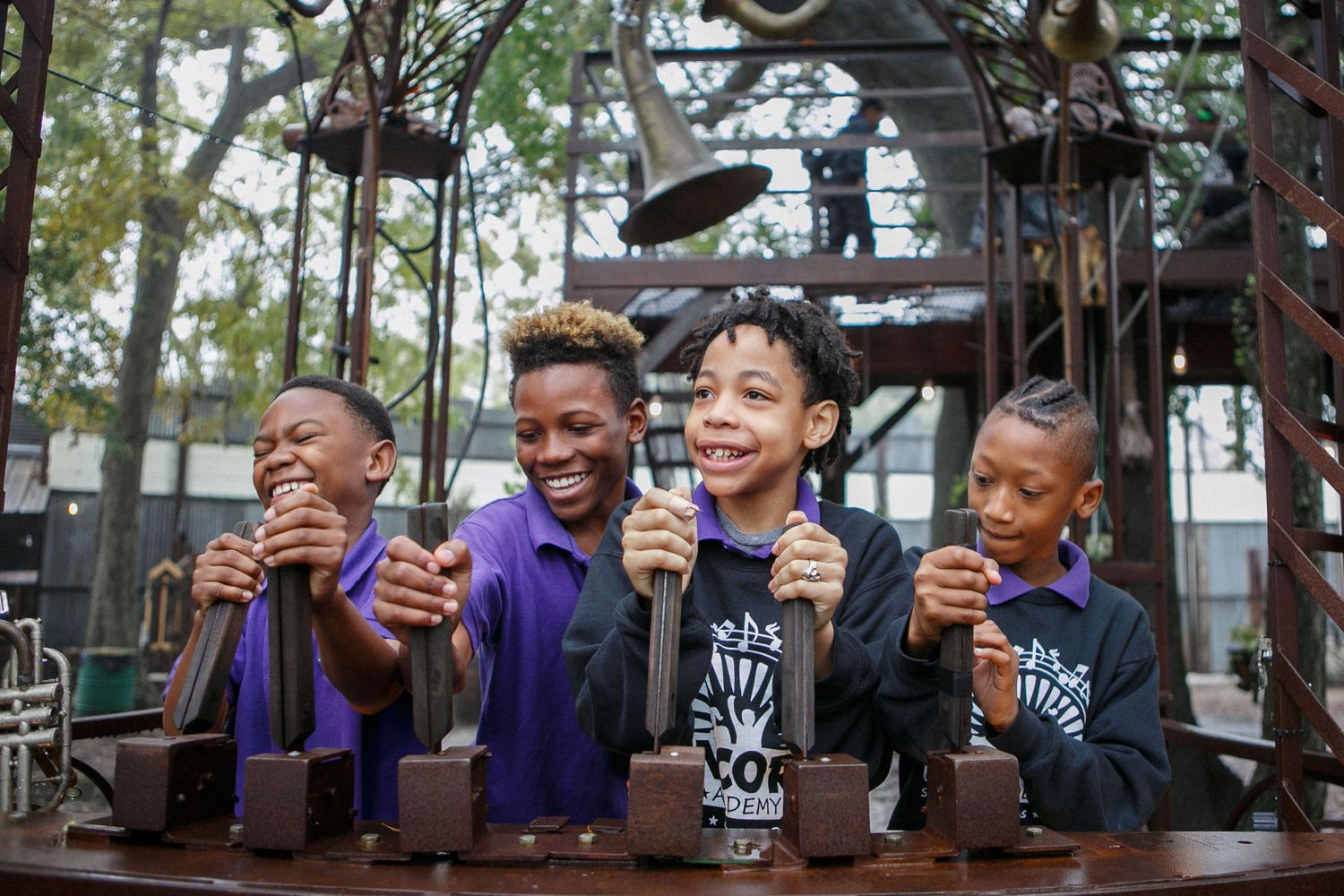
Topics
News & Resources
In Malawi, the Tumaini Festival Is More Journey Than Destination
Kensomah Magombo, Communications Officer, Tumaini Letu, in collaboration with The Ensemble editors

The Dzaleka Refugee Camp in Central Malawi is home to approximately 50,000 refugees and asylum seekers. Our organization, Tumaini Letu (“Our Hope”), strives to support this massive community however we can, using the arts to promote hope, unity, and cross-cultural engagement. Tumaini Letu was founded in 2012 by Trésor Nzengu Mpauni (widely known as Menes la Plume), a refugee from the DRC.

Our flagship program is the annual Tumaini Festival, a free three-day global celebration held in the Camp that showcases arts and cultural performances by refugee, Malawian, and international artists. As the star project of Tumaini Letu, this festival is the first and only one of its kind within a refugee camp. It highlights diverse art forms including music, theatre, poetry, and dance, spread across five performance areas. The Festival also features a display space for visual artists, a special evening dedicated to film screenings, and a children’s playground. Through everything from music and dance to spoken word and art, the Festival breaks stereotypes and builds solidarity among all attendees.
This year’s Festival took place from October 31–November 2 and was a memorable experience for the 52,000 attendees. But the Festival, for all its visibility, is always really a culmination of an entire year’s work—smaller events that help us expand our reach, find new partners, and grow our capacity to serve Dzaleka residents. There is no one event or initiative that decides whether we will be successful. As often as we can showcase the Camp’s amazing cultural diversity, we do so.
The months leading up to this year’s Festival—our tenth anniversary—saw a flurry of activity. In August, we had the honor of welcoming a delegation from Big Heart Foundation and UNHCR MENA to Dzaleka Refugee Camp. The visit was part of a learning initiative aimed at understanding our impact, our needs, and our best practices. Our guests got to speak with Dzaleka residents and artists; they were able to watch them perform as well.

Our two Youth Talent Showcases—the first in mid-August, with the theme “From Clicks to Progress,” and the second in early October, without a specific theme—were two such events, providing both performance platforms and life-changing opportunities: igniting confidence, amplifying voices, and equipping young talents with the courage and experience to step onto even bigger stages. On World Mental Health Day, October 10, we hosted a Tumaini Poetry Day at Kamuzu University of Health Sciences (KUHeS). Many talented artists shared their perspectives on mental health, displacement, and empathy. In addition, we held a community service day on October 30 (one day before the Festival); a team-building event on October 19; a Cocktail Night fundraiser on August 30. Every one of these moments was designed with the express purpose of sharing our talents, our insights, and our compassion.

All these events helped us build momentum toward the Festival, which creates platforms for learning and knowledge exchange. Of course, we know that Dzaleka Refugee Camp is a cultural hub that brims with artistry and possibility all year long. Our aim is not just to build momentum for one big event, but to shine the brightest light possible on the residents of Dzaleka, doing our best to provide them with new career pathways and opportunities.
How do we do that? Through art, of course! If there is a throughline between all these events, in addition to the communal spirit we hope to foster in the world, it is music and art. Poetry, dance, song, and music-making allow us to lower our guard and to perceive one another as the powerful storytellers we are.
Artmaking builds trust. We are grateful for the trust we’ve built with the residents of Dzaleka Refugee Camp, as well as with our growing list of partners. If you are interested in getting to know our teaching artists and the 50,000-plus artists living in Dzaleka, we hope you’ll reach out to us. The better we know each other, the more we can build bridges through culture, music, and art.
Related Content
All Regions, Community Building, Editorials, Gather Together, Opinion, Perspectives & Collective Action, Professional Development, Program Design, Student Voice & Leadership, Teaching & Learning, the ensemble
EDITORIAL
Musical Benchmarks Build Equity
Patrick Scafidi
All Regions, Collaborations, Community Building, Events/Performances, Gather Together, News and Resources, North America, Professional Development
New ESUSA Opportunities & Events
Patrick Scafidi
Collaborations, Community Building, Europe, Events/Performances, Funding & Support, Gather Together, Middle East, News and Resources, Professional Development
Funding Opportunity for Arab Artists Based in Europe
Patrick Scafidi
Collaborations, Community Building, Featured, Gather Together, New Orleans, North America, Perspectives & Collective Action, Student Voice & Leadership

The Importance of Free Play in Music Education
Patrick Scafidi


